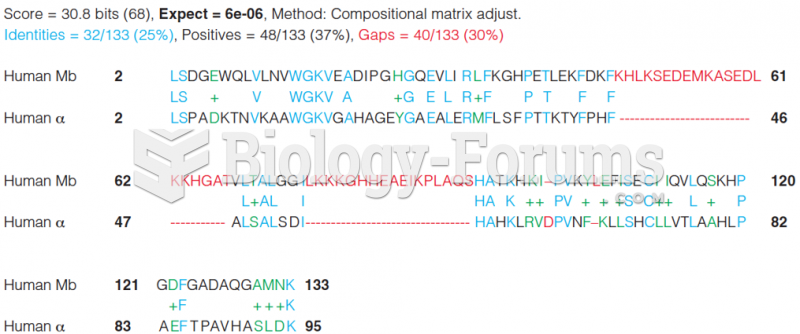|
|
|
To prove that stomach ulcers were caused by bacteria and not by stress, a researcher consumed an entire laboratory beaker full of bacterial culture. After this, he did indeed develop stomach ulcers, and won the Nobel Prize for his discovery.
Most childhood vaccines are 90–99% effective in preventing disease. Side effects are rarely serious.
Egg cells are about the size of a grain of sand. They are formed inside of a female's ovaries before she is even born.
To combat osteoporosis, changes in lifestyle and diet are recommended. At-risk patients should include 1,200 to 1,500 mg of calcium daily either via dietary means or with supplements.
Urine turns bright yellow if larger than normal amounts of certain substances are consumed; one of these substances is asparagus.







